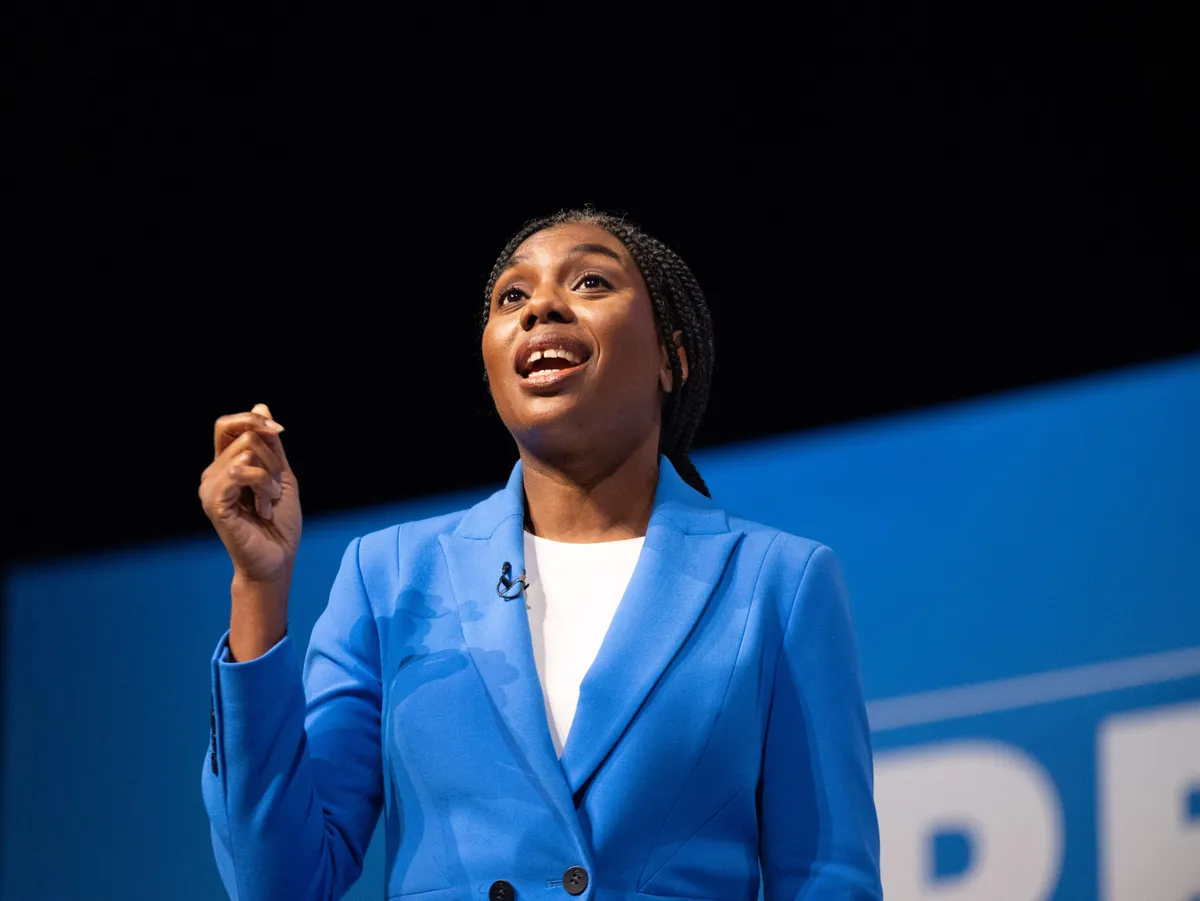The British Conservatives’ choice of leader has dragged on for a long time since the previous prime minister Rishi Sunak announced in July that he was stepping down after the party lost the parliamentary elections. The new opposition leader is either Kemi Badenoch this Robert Jenrickwhich will be revealed on Saturday.
The conservatives, who have ruled the country for more than 14 years, received the lowest share of votes and parliamentary seats in their history. The shrunken parliamentary group dropped the candidates who were closer to the center of the six candidates for leadership, and the membership elects its leader from the two who received the most votes.
Both leading candidates represent the right wing of the conservatives. They have served in previous governments, but now admit mistakes have alienated the electorate.
THE FACTS
The number of representatives dwindled
The new conservative leader will be the official leader of the opposition overseeing the government’s actions.
Additional compensation is paid for the position in addition to the MP’s salary and office expenses.
Two years ago, the number of members of the Conservative Party was more than 170,000. Since then, income from membership fees has dropped by a quarter, which indicates a drop in the number of members.
There are 121 conservatives out of the 650 MPs in the parliament, about a third of the party’s number of representatives in the previous parliament.
According to a poll by the conservative website Conservative Home, more than half of the members would support Badenoch and less than a third for Jenrick. The Daily Telegraph follows the bettors’ odds, and based on them, Badenoch’s lead has grown even clearer.
An absolute favorite
From Kemi Badenoch, the Conservatives would get the first leader of African descent. He spent his childhood in Nigeria and returned to his hometown of London as a teenager. Former prime minister Margaret Thatcher an admiring Badenoch emphasizes individual responsibility. He would like to reduce the role of the state and scrap the carbon neutrality goals.
As trade minister in Sunak’s government, Badenoch got into the teeth of some right-wing conservatives when he did not let the old EU laws expire at the end of last year. After listening to the concerns of the business world about the matter, he decided, contrary to the original plan, to give time to find out the necessity of the laws.
Badenoch is a blunt politician in his statements, which has sometimes led to difficulties. In one interview, she stated that maternity pay is unreasonable for companies. He later had to explain that he supports the benefit, but that companies are over-regulated.
Badenoch’s statement that 5 to 10 percent of civil servants are so bad that they should be in prison has also sparked controversy.
A strict position on the human rights convention
Robert Jenrick has presented clear policies, such as that the defense budget must be increased to three percent of the gross domestic product. He would limit immigration to less than 100,000 migrants per year.
Jenrick advocates Britain’s departure from the European Convention on Human Rights. Confusion and criticism was caused by his video in which it was claimed that special forces had to kill terrorists. If they were captured, they could be freed on the basis of human rights, Jenrick argued.
In Sunak’s government, Jenrick was the deputy minister responsible for immigration. He resigned because he did not consider the plans to send illegal immigrants to Rwanda to be sufficient.
According to critics, Jenrick, who was previously close to the center, has tightened his positions in order to fish for votes. His weakness is considered to be the essence of a too conventional conservative politician, which has led to the nickname “Generic”.
